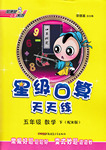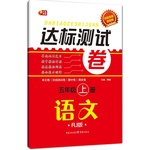题目内容
To develop her students' spelling skills, Mrs. Hardy held a spelling competition in her class. The two 1 spellers would compete in the school spelling competition with other 2 from the fourth, fifth and sixth grades.
Spelling was Jasmine's 3 subject and books were her best friends. 4 would allow her to 5 into the sea, find buried treasure, 6 meet the mean man Mr Grandet(葛朗台). Fairy tales 7 her to dream of being a princess.
The day came for Mrs. Hardy to 8 the result of the competition. Jasmine sat in her seat. Finally Mrs. Hardy announced that Reece Bradley and Jasmine Russell would 9 in the school final spelling competition.
Smiling 10 , Jasmine looked at Reece, but he 11 her by frowning(皱眉) as if he were 12 to take part in the competition.
“Way to go, Jasmine,” Rashad, Jasmine's another classmate, said with a playful push to her arm. “Do you think you have a 13 of winning the competition?”
Jasmine 14 , “My Aunt Lucy says anything can be got by 15 hard. I'm going to study the word list till my 16 stop working!”
During the break, Jasmine, Rashad and Reece met on the basketball court for a game of Horse. Jasmine said, “Let's 17 for the competition by spelling bigger words!”
“Like what?” Rashad asked. Jasmine smiled. “Like antidisestablishmentarianism.” Reece rolled his eyes and asked. “Anti—what?”
Jasmine 18 the word, trying not to laugh.
“You made that 19 ,” Rashad said. “Anything can be got by working hard. This is 20 everybody should believe in.
1. A. strong B. active C. best D. brave
2. A. competitors B. monitors C. ministers D. athletes
3. A. favorite B. basic C. obvious D. fortunate
4. A. Parents B. Teachers C. Lessons D. Books
5. A. enter B. dive C. fall D. swim
6. A. but B. than C. or D. so
7. A. reminded B. inspired C. permitted D. intended
8. A. circulate B. explain C. deliver D. announce
9. A. compete B. compare C. host D. win
10. A. sadly B. Stiffly C. kindly D. happily
11. A. scared B. pleased C. surprised D. satisfied
12. A. ready B. unhappy C. pleasant D. content
13. A. chance B. courage C. help D. power
14. A. agreed B. greeted C. asked D . nodded
15. A. thinking B. working C. playing D. behaving
16. A. arms B. brains C. ears D. hands
17. A. explore B. build C. practise D. organize
18. A. limited B. tricked C. described D. repeated
19. A. into B. out C. up D. over
20. A. what B. that C. why D. which
1—5 CAADB 6—10 CBDAD
11—15 CBADB 16—20 BCDCA

 星级口算天天练系列答案
星级口算天天练系列答案 芒果教辅达标测试卷系列答案
芒果教辅达标测试卷系列答案There are two factors which determine an individual's intelligence. The first is the sort of brain he is born with. Human brains differ considerably, some being more capable than others. But no matter how good a brain he has to begin with, an individual will have a low order of intelligence unless he has opportunities to learn. So the second factor is what happens to the individual—the sort of environment in which he is reared (培养). If an individual is handicapped (妨碍) environmentally, it is likely that his brain will fail to develop and he will never attain the level of intelligence of which he is capable.
The importance of environment in determining an individual's intelligence can be demonstrated by the case history of the identical twins, Peter and Mark X. Being identical, the twins had identical brains at birth, and their growth processes were the same. When the twins were three months old, their parents died, and they were placed in separate foster homes. Peter was reared by parents of low intelligence in an isolated community with poor educational opportunities. Mark was reared in the home of well-to-do parents who had been to college. He was read to as a child, sent to good schools, and given every opportunity to be stimulated intellectually. This environmental difference continued until the twins were in their late teens, when they were given tests to measure their intelligence. Mark's I.Q. was 125, twenty-five points higher than the average and fully forty points higher than his identical brother. Given equal opportunities, the twins, having identical brains, would have tested at roughly the same level.
【小题1】This passage can be best titled_________.
| A.Intelligence and Environment |
| B.Measuring Your Intelligence |
| C.The Case of Peter and Mark |
| D.How the brain Influences Intelligence |
| A.85 | B.125 | C.110 | D.100 |
| A.individual with identical brains seldom test at same level |
| B.an individual's intelligence is determined only by his environment |
| C.changes of environment produce changes in the structure of the brain |
| D.lack of opportunity blocks the growth of intelligence |
| A.can be increased by education |
| B.stays the same throughout his life |
| C.can be predicted at birth |
| D.is determined by his childhood |
Given that many people's moods (情绪)are regulated by the chemical action of chocolate, it was probably only a matter of time before somebody made the chocolate shop similar to a drug store of Chinese medicine. Looking like a setting from the film Charlie&the Chocolate Factory, Singapore's Chocolate Research Facility (CRF) has over 100 varieties of chocolates.its founder is Chris Lee who grew up at his parents' corner store with one hand almost always in the jar of sweets.
If the CRF seems to be a smart idea, that's because Lee is not merely a seasoned salesperson but also head of a marketing department that has business relations with big names such as Levi's and Sony. That idea surely results in the imagination at work when it comes to making different flavored(味道)chocolates.
The CRF's produce is "green". made within the country and divided into 10 lines, with the Alcohol Series being the most popular. The Exotic Series一with Sichuan pepper, red bean (豆).cheese and other flavors一also does well and is fun to taste. And for chocolate snobs,who think that they have a better knowledge of chocolate than others, the Connoisseur Series uses cocoa beans from Togo, Cuba, Venezuela , and Ghana, among others.
【小题1】What is good about chocolate?
| A.It serves as a suitable gift. |
| B.It works as an effective medicine. |
| C.It helps improve the state of mind. |
| D.It strengthens business relations. |
| A.He knows the importance of research. |
| B.He learns form shops of similar types. |
| C.He has the support of many big names |
| D.He has a lot of marketing experience. |
| A.The Connoisseur Series. |
| B.The Exotic Series. |
| C.The Alcohol Series. |
| D.The Sichuan Series. |
| A.are particular about chocolate |
| B.know little about cocoa beans |
| C.look down upon others |
| D.like to try new flavors |
As societies develop,their members start to see things not so much according to what they need,but according to what they want.When people have enough money,these wants become demands.
Now,it’s important for the managers in a company to understand what their customers want if they are going to develop effective marketing strategies(策略).There are various ways of doing this.One way at supermarkets(超市),for example,is to interview(采访)customers while they’re doing their shopping.They can be asked what they prefer to buy and then the results of the research can be studied.This provides information on which to base future marketing strategies.It’s also quite normal for top managers from department stores to spend a day or two each month visiting stores and mixing freely with the public,as if they were ordinary customers,to get an idea of how customers act.
Another way to get information from customers is to give them something.For example,some fast food restaurants give away tickets in magazines or on the street that permit customers to get part of their meal for nothing.As well as being a good way of attracting customers into the restaurants to spend their money,it also allows the managers to get a feel for where to attract customers and which age-groups to attract.
Another strategy used at some well-known parks such as Disneyland is for top managers to spend at least one day in their work,touring the park dressed as Mickey Mouse or something like that.This provides them with a perfect chance to examine the scene and watch the customers without being noticed.
【小题1】The text is designed for ________.
| A.managers | B.salesmen |
| C.researchers | D.customers |
| A.Visiting customers themselves. |
| B.Giving customers free food on the street. |
| C.Visiting parks as ordinary customers. |
| D.Asking customers questions at supermarkets. |
| A.Visiting Disneyland. |
| B.Wearing attractive clothes. |
| C.Acting Mickey Mouse. |
| D.Dressing up and walking around. |
| A.how to do market research |
| B.how to develop marketing strategies |
| C.how to find out customers’ social needs |
| D.how to encourage customers to spend more money |